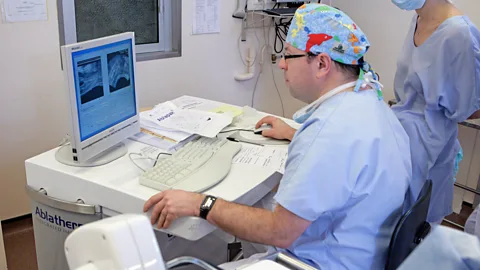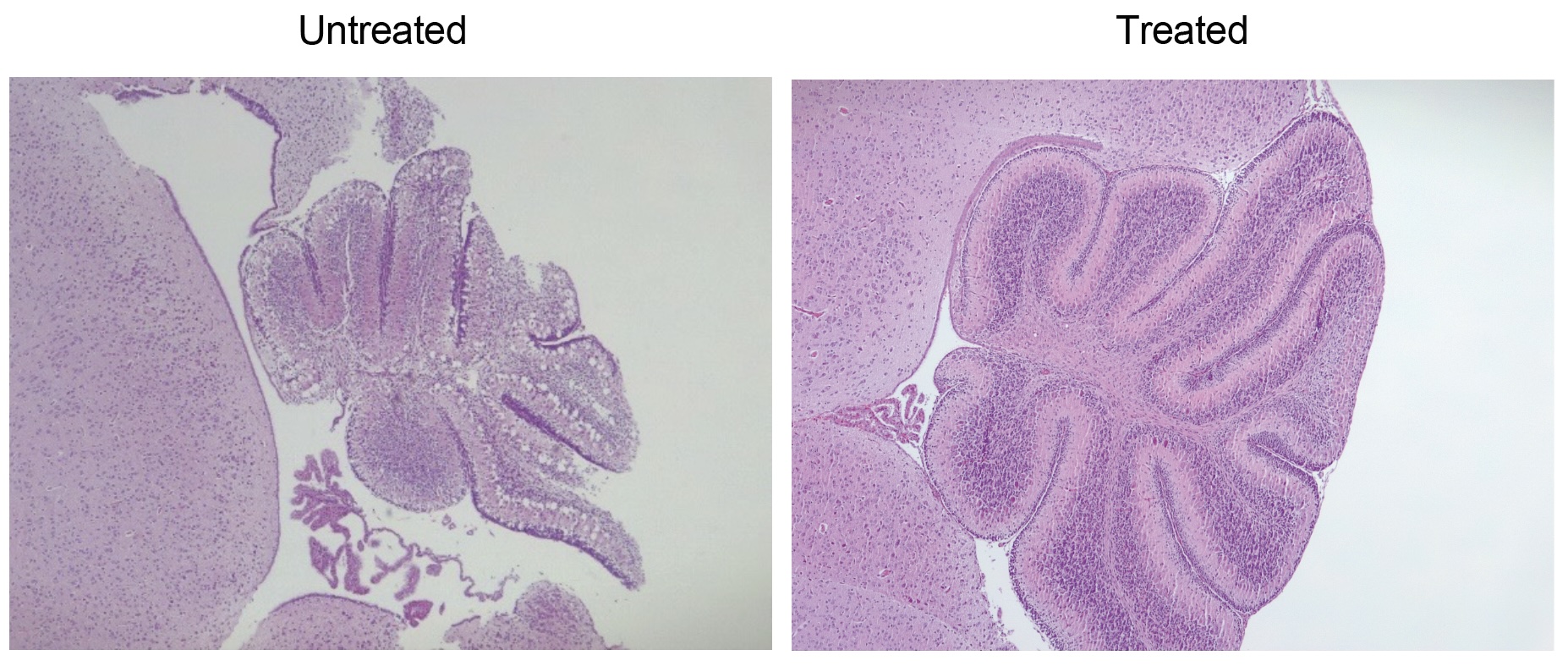By David CoxFeatures correspondent
 AlamyScientists have started to uncover why the risk of cancer increases as we age, offering hope for novel treatments. The recent disclosure of King Charles’ cancer diagnosis has raised awareness about the elevated cancer risk faced by older individuals. The progression of time has been recognized as one of the primary risk factors for cancer development. According to the US National Cancer Institute, the average age for cancer onset is 66, with more than half of new UK cancer cases occurring in individuals aged 70 and older.There are multiple reasons for this trend. Firstly, as we age, our cells accumulate more DNA damage due to various factors such as UV exposure, chronic inflammation, environmental toxins, alcohol consumption, smoking, and microbial infections. However, as we grow older, our cells become less effective at repairing this damage, leading to a buildup of DNA mutations, increasing the risk of uncontrolled cell division or cancer.”The repair mechanisms that might prevent the onset of changes that lead to cancer are in decline as we age,” says Richard Siow, from King’s College London. “As we age, the balances that maintain normal cellular function go into decline.” Furthermore, accumulating mutations have been found to hinder the immune cells’ ability to suppress and destroy cancer cells. In particular, the effectiveness of a critical molecular pathway, p53, which suppresses tumors, declines with age due to mutations in the p53 gene.Scientists have observed that various gene mutations in blood stem cells lead to their progressive enlargement over time, a phenomenon called clonal hematopoiesis. This is more common in older individuals and can elevate the risk of blood cancers and alter the function of immune cells. Additionally, it can induce chronic inflammation, exacerbating damage and vulnerability to cancer. Research has also suggested that as cells age, they may “forget” how to behave correctly, increasing cancer risk.Just as human memory declines with age, some cancer biologists believe that individual cells might also lose their memory over time and forget how to behave correctly. This theory is being explored in the context of breast cancer, especially triggered by hormonal changes during menopause. Eight out of 10 breast cancer cases are diagnosed in women over 50. Over time, the genome becomes less stable, impacting gene activity without altering the DNA sequence.”Information is transmitted in a less coherent and reliable way as you get older,” says Andy Feinberg from Johns Hopkins Medicine. “There’s more noise, and that leads to more randomness or uncertainty about the pattern of which genes are supposed to be on and which are supposed to be off. The parts of the genome with increased noise are more likely to undergo carcinogenic changes.”Understanding the link between aging and cancer may lead to new treatments. Researchers are investigating small molecules that aim to address the effects of mutations in the p53 pathway and restore its tumor-suppressing functions. Moreover, ongoing clinical trials are exploring chemical cocktails, known as senolytics, to selectively eliminate senescent cells without causing harm to healthy tissue. These trials may have significant implications for reversing age-related changes and improving population health in the future.”The aim is also to reduce the healthcare economic burden,” says Siow. “The care infrastructure is going to be really expensive because populations are living longer with disease.”–If you liked this story, sign up for The Essential List newsletter – a handpicked selection of features, videos and can’t-miss news delivered to your inbox every Friday.Join one million Future fans by liking us on Facebook, or follow us on Twitter or Instagram.
AlamyScientists have started to uncover why the risk of cancer increases as we age, offering hope for novel treatments. The recent disclosure of King Charles’ cancer diagnosis has raised awareness about the elevated cancer risk faced by older individuals. The progression of time has been recognized as one of the primary risk factors for cancer development. According to the US National Cancer Institute, the average age for cancer onset is 66, with more than half of new UK cancer cases occurring in individuals aged 70 and older.There are multiple reasons for this trend. Firstly, as we age, our cells accumulate more DNA damage due to various factors such as UV exposure, chronic inflammation, environmental toxins, alcohol consumption, smoking, and microbial infections. However, as we grow older, our cells become less effective at repairing this damage, leading to a buildup of DNA mutations, increasing the risk of uncontrolled cell division or cancer.”The repair mechanisms that might prevent the onset of changes that lead to cancer are in decline as we age,” says Richard Siow, from King’s College London. “As we age, the balances that maintain normal cellular function go into decline.” Furthermore, accumulating mutations have been found to hinder the immune cells’ ability to suppress and destroy cancer cells. In particular, the effectiveness of a critical molecular pathway, p53, which suppresses tumors, declines with age due to mutations in the p53 gene.Scientists have observed that various gene mutations in blood stem cells lead to their progressive enlargement over time, a phenomenon called clonal hematopoiesis. This is more common in older individuals and can elevate the risk of blood cancers and alter the function of immune cells. Additionally, it can induce chronic inflammation, exacerbating damage and vulnerability to cancer. Research has also suggested that as cells age, they may “forget” how to behave correctly, increasing cancer risk.Just as human memory declines with age, some cancer biologists believe that individual cells might also lose their memory over time and forget how to behave correctly. This theory is being explored in the context of breast cancer, especially triggered by hormonal changes during menopause. Eight out of 10 breast cancer cases are diagnosed in women over 50. Over time, the genome becomes less stable, impacting gene activity without altering the DNA sequence.”Information is transmitted in a less coherent and reliable way as you get older,” says Andy Feinberg from Johns Hopkins Medicine. “There’s more noise, and that leads to more randomness or uncertainty about the pattern of which genes are supposed to be on and which are supposed to be off. The parts of the genome with increased noise are more likely to undergo carcinogenic changes.”Understanding the link between aging and cancer may lead to new treatments. Researchers are investigating small molecules that aim to address the effects of mutations in the p53 pathway and restore its tumor-suppressing functions. Moreover, ongoing clinical trials are exploring chemical cocktails, known as senolytics, to selectively eliminate senescent cells without causing harm to healthy tissue. These trials may have significant implications for reversing age-related changes and improving population health in the future.”The aim is also to reduce the healthcare economic burden,” says Siow. “The care infrastructure is going to be really expensive because populations are living longer with disease.”–If you liked this story, sign up for The Essential List newsletter – a handpicked selection of features, videos and can’t-miss news delivered to your inbox every Friday.Join one million Future fans by liking us on Facebook, or follow us on Twitter or Instagram.
Understanding the Impact of Age on Cancer Risk













